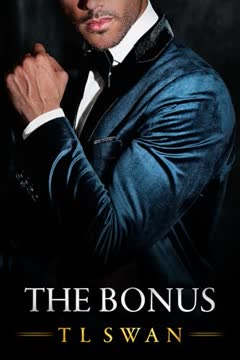Plot Summary
Six Degrees of Separation
Beck Wilde, a successful but driven real estate developer, is fixated on acquiring a rundown Mayfair property owned by the elusive Henry Dawnay. Despite his wealth and connections, Beck can't get a meeting with Henry, who stands between him and a multi-million-pound deal—and a chance to rewrite his own family history. Beck's friends, loyal but unhelpful, can't provide an introduction. The building is more than a business opportunity: it's a symbol of his mother's past and his own sense of belonging. As Beck's frustration mounts, he learns Henry will attend a week-long society wedding in Scotland. Determined, Beck sets out to crash the event, convinced it's his only shot at changing his fate.
The Wedding Invitation Bombshell
Stella London, a talented but underappreciated interior designer stuck in a recruitment job, is blindsided when her best friend Florence delivers devastating news: Stella's long-term boyfriend, Matt, is marrying her other best friend, Karen. The wedding invitation arrives like a slap—Stella is invited to witness the union of the two people who betrayed her most. Reeling from heartbreak and humiliation, Stella is torn between hiding from the world and confronting her past. The invitation becomes a symbol of everything she's lost, and she's forced to question her self-worth, her friendships, and the future she thought she had.
Bargaining for a Plus-One
Beck, determined to attend the wedding, discovers that Stella is the only single woman on the guest list with a plus-one. He tracks her down, offering her a business deal in exchange for an invitation. Stella, still raw from betrayal, is skeptical and initially refuses. Beck's persistence and willingness to offer her anything—money, favors, even a career opportunity—make her reconsider. With her own life at a crossroads, Stella begins to see the wedding as a chance to reclaim her power, provided she can name her price and survive the emotional gauntlet.
The Fake Boyfriend Pact
Stella and Beck strike a bargain: Beck will be her fake boyfriend at the wedding, helping her save face and confront her ex and ex-best friend, while she'll introduce him to Henry. Stella negotiates to be the lead designer on Beck's Mayfair project, a chance to revive her career and self-esteem. The arrangement is strictly business—no feelings, just mutual benefit. But as they prepare for the charade, both sense the lines between pretense and reality beginning to blur, and the emotional risks become as high as the financial ones.
Practice Makes Perfect
To pull off their ruse, Stella and Beck embark on a crash course in each other's lives. They spend weekends together, meet each other's friends, and rehearse their story. The process is awkward, funny, and unexpectedly intimate. Stella's friends are charmed by Beck, while Beck's friends see a new side of him. As they share vulnerabilities and past wounds, their connection deepens. The act of pretending forces them to confront their own fears about love, trust, and what they truly want from life.
Engagement Party Showdown
At the engagement party, Stella and Beck must face Matt, Karen, and a room full of curious friends. Their chemistry is undeniable, and their performance as a couple is so convincing it unsettles both their exes and themselves. Beck's support gives Stella the confidence to hold her head high, while Stella's presence grounds Beck in a world he's always felt excluded from. The night is a turning point: the fake relationship feels increasingly real, and both begin to question what's truly at stake.
Prepping for Scotland
As the wedding week in Scotland approaches, Stella's anxiety mounts. She fears being exposed as a fraud and reliving her heartbreak. Beck, under pressure from his bank and haunted by his family history, is equally on edge. They double down on their preparations, learning each other's quirks and secrets. The forced proximity and emotional honesty draw them closer, but both are afraid to admit how much they're starting to care. The stage is set for a week that will test their pact—and their hearts.
Facing the Past
In Scotland, Stella is surrounded by reminders of her past: the castle where she once dreamed of marrying Matt, the friends who knew her before everything changed, and the woman who betrayed her. Beck, meanwhile, must navigate the world of old money and tradition, trying to win over Henry while feeling like an outsider. Both are forced to confront the people and patterns that have held them back. Their alliance becomes a lifeline, each drawing strength from the other as they face their greatest fears.
The Kiss That Changes Everything
A spontaneous, passionate kiss between Stella and Beck shatters the boundaries of their arrangement. What began as a performance for others becomes a moment of genuine connection. The chemistry they've been denying erupts, and both are left reeling. For Stella, it's a reminder that she can feel desire and hope again; for Beck, it's proof that he can let someone in. The kiss marks a turning point: the fake relationship is no longer just a means to an end, but the beginning of something neither expected.
Secrets and Sabotage
As the wedding week unfolds, secrets come to light. Beck's true motivation for acquiring the Mayfair building—his mother's eviction and his own illegitimacy—emerges, deepening Stella's understanding of him. Stella, in turn, confronts Karen and Matt, finally voicing her pain and anger. The couple's growing intimacy is threatened by old insecurities and the machinations of those who would see them fail. Both must decide whether to trust each other and themselves, or retreat into old patterns of self-protection.
Confrontations and Closure
Stella faces Matt and Karen, demanding answers and closure. She realizes that their betrayal says more about them than about her, and she refuses to let their actions define her future. Beck, meanwhile, confronts Henry and negotiates the deal of his life, but must decide whether to accept Henry's condition of keeping the Dawnay name on the building. Both are forced to choose between holding onto old wounds and embracing new possibilities. Their courage in confronting the past paves the way for healing and growth.
The Real Deal
With the wedding behind them, Stella and Beck return to London changed. Stella quits her job, determined to rebuild her design career on her own terms. Beck secures the Mayfair building, but realizes that the real prize is the life he's building with Stella. They struggle with the transition from fake to real, each afraid of being hurt again. But through honest conversation and mutual support, they acknowledge their feelings and commit to a future together—both in business and in love.
Escaping the Wedding
On the day of Matt and Karen's wedding, Stella and Beck decide to leave Scotland early, refusing to give their energy to people who don't deserve it. Their escape is both literal and symbolic: they are done letting the past dictate their happiness. On the journey home, they receive confirmation that Beck's deal with Henry is done, and Stella's new career is about to begin. The future is uncertain, but for the first time, both feel free to pursue what they truly want—together.
New Beginnings, New Risks
Back in London, Stella launches her design business with Beck's support, and the two navigate the challenges of working and loving together. Old fears resurface, but they learn to communicate and trust. Beck's friends, once skeptical, embrace Stella as one of their own. The couple's partnership is tested by the demands of business, family, and the ghosts of their pasts, but their commitment to each other only grows stronger. They discover that real love is built on honesty, respect, and the willingness to fight for each other.
Love, Business, and Belonging
As the Mayfair project nears completion, Beck and Stella reflect on how far they've come. The building that once symbolized loss and exclusion now represents hope and belonging. Stella's creativity and Beck's determination have transformed not just bricks and mortar, but their own lives. Surrounded by friends and family, they celebrate their achievements and look forward to a future filled with possibility. The wounds of the past have healed, replaced by a love that is both passionate and enduring.
Happily Ever After
In the epilogue, Stella and Beck are thriving—personally and professionally. Their love has deepened, and they continue to support each other's dreams. Friends find their own happiness, and the betrayals of the past are distant memories. The couple's journey from heartbreak and ambition to trust and partnership is complete. They have learned that true happiness comes not from erasing the past, but from building something new—together. Their story is a testament to resilience, forgiveness, and the transformative power of love.
Characters
Beck Wilde
Beck is a self-made real estate developer whose relentless ambition is fueled by a deep sense of exclusion and unresolved family trauma. The illegitimate son of a wealthy aristocrat, Beck's mother was evicted and discarded, leaving him with a lifelong need to prove himself and reclaim what he believes was stolen from him. His pursuit of the Mayfair building is both a business goal and a personal crusade to rewrite his history. Beck is fiercely loyal to his friends, competitive, and emotionally guarded, but beneath his bravado lies vulnerability and a longing for acceptance. Through his partnership with Stella, Beck learns to trust, love, and let go of the past, finding true belonging not in property, but in connection.
Stella London
Stella is a talented interior designer whose life is upended by betrayal: her long-term boyfriend and best friend marry each other, shattering her trust and sense of self. Forced into a job she hates to pay the bills, Stella struggles with self-doubt and a tendency to put others' needs before her own. Her deal with Beck is a turning point, offering her a chance to reclaim her career and dignity. Stella is empathetic, witty, and quietly strong, but must learn to assert herself and demand respect. Her journey is one of healing, self-discovery, and learning to risk her heart again. With Beck, she finds not just love, but the courage to build the life she truly wants.
Matt Gordon
Matt is Stella's ex-boyfriend, whose decision to marry her best friend Karen sets the story in motion. Outwardly affable and successful, Matt is ultimately self-serving, unable to confront his own failings or take responsibility for the hurt he causes. His betrayal devastates Stella but also forces her to confront uncomfortable truths about herself and her relationships. Matt's actions are a mirror for the dangers of complacency and the importance of self-respect. He represents the past Stella must leave behind to find happiness.
Karen
Karen is Stella's childhood best friend, whose affair and subsequent marriage to Matt is both shocking and deeply wounding. Polished, entitled, and skilled at getting what she wants, Karen is a master of self-justification. Her betrayal is less about malice than self-interest, but it exposes the cracks in her friendship with Stella and the superficiality of her own happiness. Karen's choices force Stella to reevaluate her own boundaries and the meaning of loyalty.
Florence
Florence is Stella's steadfast friend, offering support, tough love, and practical advice throughout Stella's ordeal. She is the first to encourage Stella to seize the opportunity with Beck and to stand up to Karen and Matt. Florence's own relationship with Gordy provides a counterpoint to Stella's romantic struggles, embodying the value of honesty, communication, and mutual respect. She is the anchor that helps Stella navigate the storm.
Henry Dawnay
Henry is the aristocratic owner of the Mayfair building and Karen's godfather. He represents the world of old money and tradition that Beck both covets and resents. Henry is shrewd, principled, and ultimately fair, but his initial aloofness forces Beck to confront his own insecurities and prejudices. The negotiation with Henry is as much about personal closure as it is about business, and his eventual acceptance of Beck is a form of redemption.
Dexter
Dexter is one of Beck's closest friends, providing comic relief, tough truths, and unwavering loyalty. He is perceptive, often seeing through Beck's defenses and challenging him to confront his feelings for Stella. Dexter's own experiences with loss and regret make him a wise, if sometimes irreverent, advisor. He embodies the importance of chosen family and the power of friendship to heal old wounds.
Joshua
Joshua is another of Beck's inner circle, known for his hacking skills and dry wit. He assists Beck in his quest to access Henry's world and provides a sounding board for Beck's anxieties. Joshua's pragmatism and loyalty are essential to Beck's success, and his presence underscores the theme of brotherhood and mutual support.
Gordy
Gordy is Florence's boyfriend, a kind and reliable presence who supports Florence and, by extension, Stella. His relationship with Florence offers a contrast to the dysfunction of Stella's past, demonstrating the value of patience, understanding, and partnership. Gordy's quiet strength is a reminder that real love is built on everyday acts of care.
Tristan
Tristan is part of Beck's friend group, known for his sharp tongue and relentless competitiveness. He provides levity and perspective, often teasing Beck but also pushing him to be honest about his feelings. Tristan's banter masks a genuine concern for his friends, and his presence highlights the importance of camaraderie and not taking oneself too seriously.
Plot Devices
Fake Relationship Trope
The central device is the classic "fake relationship" agreement: Beck and Stella pretend to be a couple for mutual gain—he gets access to Henry, she gets a career opportunity and a shield against humiliation. This setup creates built-in tension, forced proximity, and opportunities for both comedic and heartfelt moments. As they rehearse their roles, the boundaries between performance and reality blur, allowing genuine intimacy to develop. The trope is used not just for romantic tension, but as a vehicle for character growth, healing, and the exploration of trust.
Parallel Emotional Arcs
The narrative structure alternates between Beck and Stella's perspectives, mirroring their parallel struggles with past wounds, self-worth, and the search for belonging. Their individual arcs—Beck's quest to overcome his outsider status and Stella's journey to reclaim her agency—intersect and reinforce each other. The symmetry of their stories creates a sense of inevitability and emotional resonance, culminating in mutual transformation.
Social Class and Belonging
The contrast between Beck's self-made wealth and the world of inherited privilege is a recurring motif. The Mayfair building is both a literal and symbolic barrier, representing the gatekeeping of tradition and the longing for acceptance. The wedding setting amplifies these themes, forcing both protagonists to confront their insecurities and challenge the status quo. The device is used to explore issues of identity, legacy, and the true meaning of home.
Foreshadowing and Symbolism
The Mayfair building, the wedding invitation, and the question of whose name will adorn the property all serve as symbols of the characters' internal struggles. The act of renovation—tearing down the old to build something new—mirrors the protagonists' emotional journeys. Foreshadowing is used to hint at the eventual collapse of old relationships and the emergence of new ones, creating a sense of anticipation and thematic cohesion.
Confrontation and Closure
Key plot points revolve around the necessity of confronting those who have caused pain—Matt, Karen, Henry—and demanding answers or justice. These confrontations are not just about retribution, but about reclaiming power and agency. The device is used to show that true closure comes not from erasing the past, but from integrating its lessons and moving forward with intention.
Analysis
Mr. Mayfair is a modern, emotionally intelligent take on the fake relationship romance, using the trope not just for entertainment but as a lens for exploring deeper themes of self-worth, healing, and the search for belonging. At its core, the novel is about two people who have been wounded by the past—one by family rejection and the other by betrayal—learning to trust again and to build a future on their own terms. The story deftly weaves together issues of class, legacy, and ambition, showing how the pursuit of external validation can only be satisfied by genuine connection. Through witty dialogue, vulnerable moments, and a cast of well-drawn supporting characters, the book argues that happiness is not found in erasing the past, but in transforming it—renovating the ruins of old hurts into the foundation of something new. The lesson is clear: love, like any great building, requires risk, resilience, and the courage to let someone in. In a world obsessed with appearances and status, Mr. Mayfair reminds us that true belonging is found not in the approval of others, but in the arms of those who see and cherish us for who we are.
Last updated:
Review Summary
Mr. Mayfair received mostly positive reviews, with readers praising the engaging fake relationship trope, witty banter, and steamy romance. Many enjoyed the chemistry between Beck and Stella, finding them relatable and endearing. Some criticized the heroine as weak or the plot as predictable. The book was described as a fun, lighthearted read with British charm. While a few readers found it average, most considered it an enjoyable romantic comedy with well-developed characters and an satisfying ending.
Mister Series
Similar Books
Download PDF
Download EPUB
.epub digital book format is ideal for reading ebooks on phones, tablets, and e-readers.







